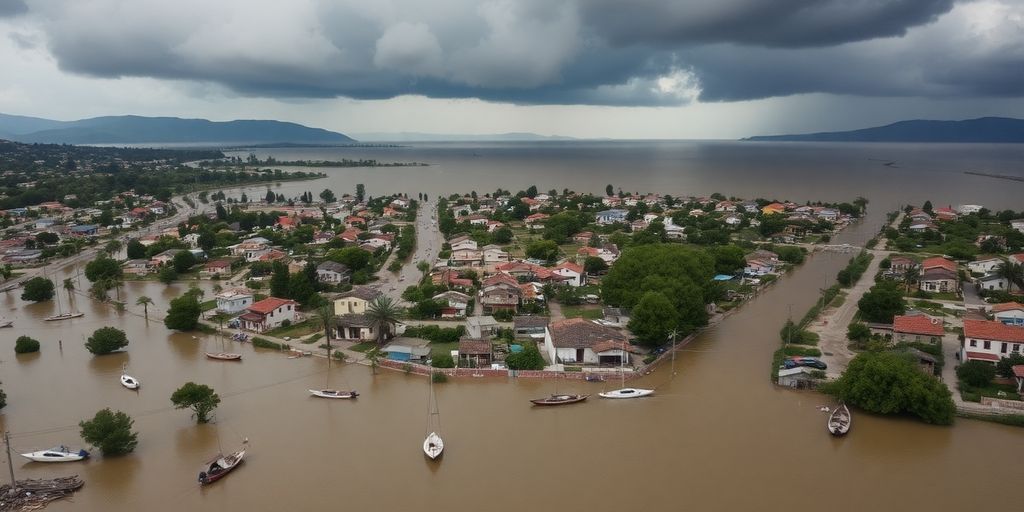Severe weather has wreaked havoc across Greece’s Aegean Islands, leading to flash floods that have caused significant damage just before the Easter tourist season. Torrential rains and strong winds have submerged streets, disrupted travel, and prompted emergency responses across several islands, including Paros and Mykonos.
Key Takeaways
- Severe storms hit Greece’s Aegean Islands, causing flash floods and extensive damage.
- The islands of Paros and Mykonos received a month’s worth of rain in just a few hours.
- Emergency services conducted rescues as residents were trapped by rising waters.
- The adverse weather is linked to climate change, making storms wetter and more destructive.
Overview of the Weather Event
In late March and early April, a series of powerful thunderstorms struck the Aegean Islands, bringing unprecedented rainfall. The storms were particularly severe on March 31, when Paros and Mykonos experienced torrential downpours that led to flash flooding. Reports indicate that these islands received at least a month’s worth of rain within a mere three-hour period, resulting in streets being submerged and vehicles swept away.
Impact on Local Communities
The flooding has had a profound impact on local communities:
- Emergency Responses: Authorities closed schools and restricted travel to emergency vehicles only. Firefighters rescued 13 individuals trapped by floodwaters.
- Infrastructure Damage: Streets were inundated with mud and debris, complicating cleanup efforts. Drone footage revealed extensive damage across affected areas, with local residents working tirelessly to restore normalcy before the influx of tourists.
- Tourism Concerns: With Easter approaching, local businesses are anxious about the potential impact on tourism, a vital part of the economy in these regions.
Climate Change Connection
Recent studies have indicated that the severity of these storms is exacerbated by climate change. Researchers have found that storms in the Mediterranean are becoming wetter and more destructive due to rising sea surface temperatures. This trend aligns with projections from the Intergovernmental Panel on Climate Change (IPCC), which warns of increasing extreme weather events in the region.
Future Weather Outlook
As Greece braces for more unstable weather, meteorologists predict further rainfall and potential snowfall in northern regions. The National Observatory of Athens has issued warnings for a significant temperature drop, which could lead to additional weather-related challenges in the coming days.
Conclusion
The recent flash floods in Greece’s Aegean Islands serve as a stark reminder of the increasing frequency and intensity of extreme weather events linked to climate change. As communities begin the arduous task of recovery, the need for improved infrastructure and preparedness becomes ever more critical to mitigate the impacts of future storms.
Sources
- Unsettled Weather Grips Greece With Temperature Plunge On The Horizon, Greek City Times.
- Greece storms were made wetter and more destructive by climate change, study finds, Euronews.com.
- Drone footage shows extent of flood damage to Greek island – video | Greece, The Guardian.
- Drone footage shows scale of Greek island flooding, BBC.
- Weather tracker: powerful storms bring flooding to Aegean islands | Extreme weather, The Guardian.





